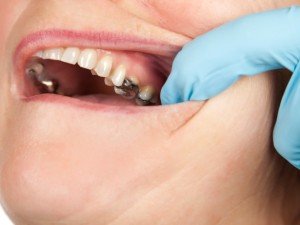Toxins in plastics, meats can harm child health: experts
2 min read
Exposure to toxins found in everyday items can wreak havoc on children’s hormonal systems and set them up for a lifetime of poor health, child health experts from Mount Sinai Medical Center said Monday.
Some beauty products, fatty meats, pesticides, plastics and cigarettes can contain dangerous chemicals including PCBs, pthtalates and parabens, the experts from Mount Sinai Hospital said at a symposium at the New York Academy of Medicine.
Contact with these toxins from pregnancy through adolescence can increase the risk of neurological problems, learning disabilities and chronic diseases such as breast cancer and diabetes, the panel of child health experts said.
“These are molecular events that have real world consequences that spread over a lifetime,” said Dr. Philip J. Landrigan, director of Mount Sinai’s Children’s Environmental Health Center. “They have an effect to produce profound and lasting effects on the human body.”
A 2010 Mount Sinai study found children aged 4 to 9 who were exposed to phthlates in the womb showed an increase in depression, aggression and conduct disorders.
EPA Region II Administrator Judith Enck told the audience that the Toxic Substances Control Act, which governs chemicals, doesn’t have the teeth to regulate the roughly 80,000 chemicals used in commerce.
“It’s outdated, and frankly, doesn’t protect us from chemicals,” she said.
Earlier this year, Sen. Frank Lautenberg introduced the Safe Chemicals Act, which would reform the toxic substances act and mandate stronger regulations for chemicals.
“Because America’s chemical safety laws are broken, we are exposed to untested chemicals in products every day,” Lautenberg said in a statement. “The Safe Chemicals Act is a common-sense public health measure that would put the burden on chemical companies to prove their products are safe before they end up in our homes and our bodies.”
The experts urged people to limit contact with these chemicals by stopping smoking, replacing plastics with glass and stainless steel, limiting meat consumption, using alternatives to pesticides and avoiding products with “fragrance” in their ingredient list.






